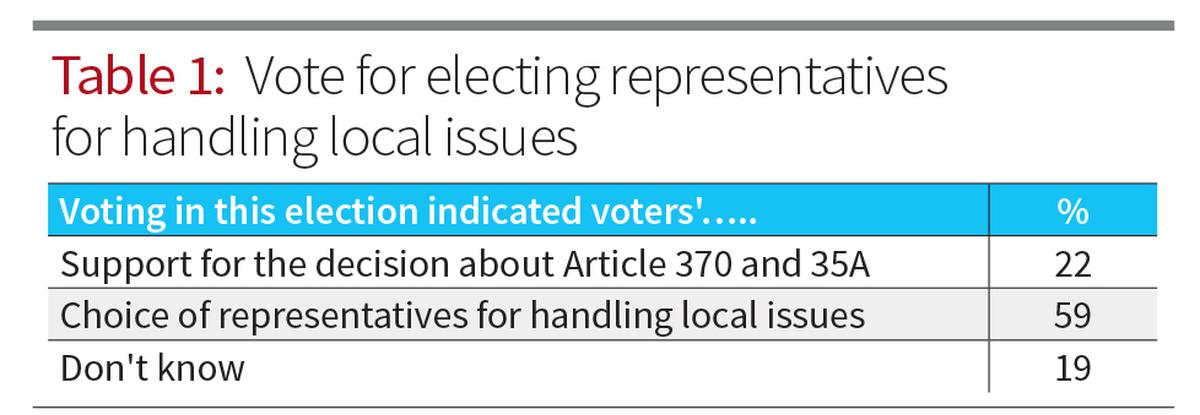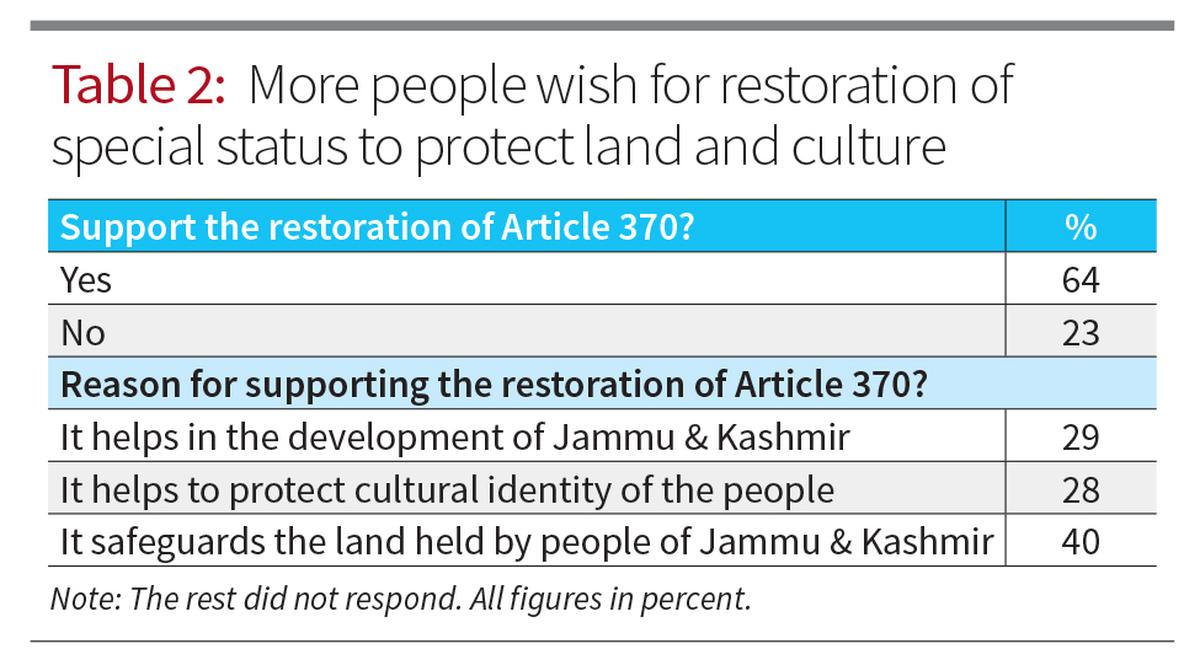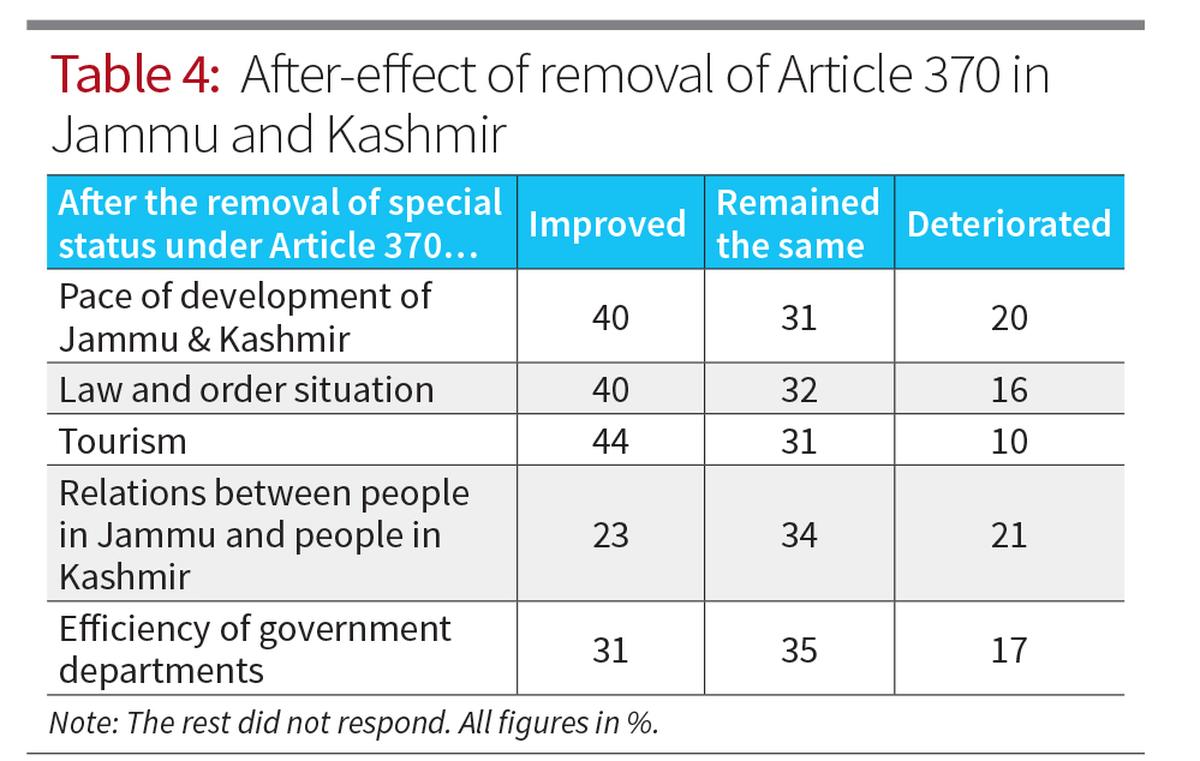
As many as 40% of respondents said that law and order situation improved since the removal of Article 370. File
| Photo Credit: The Hindu
Five years since the dilution of Article 370 and termination of Statehood, the Assembly election in Jammu and Kashmir have finally been held. A large fraction of registered voters (about 64%) cast their votes. What explains this high level of participation in this election? What might have driven the voters to the polling stations? What has changed and what has not after the end of special status accorded to Jammu and Kashmir? The CSDS-Lokniti survey helps answer these crucial questions.

The findings of the survey revealed that for a majority of voters (59%), Assembly election was an opportunity to elect representatives to address local issues rather than approve Union government’s doing away with the Article 370 (Table 1). A large majority of people (64%) also appeared to support restoration of the special status granted to the erstwhile State of Jammu and Kashmir (Table 2). The driving force behind this desire was old anxieties of losing land and cultural identity in the absence of protective shield provided by Article 370. While a little more than a third of respondents (40%) wished to get back the special status for protecting land owned by the local people, for another 28% of respondents it was necessary for preserving their cultural identity.

There is a strong desire for restoration of the Statehood. An overwhelming majority of respondents (81%) felt that a better future for them lies in getting back the Statehood. A major argument invoked to end the special status granted to Jammu and Kashmir was that it would ensure faster pace of development and help improve the law and order situation. Four in ten respondents held that the processes of development have gathered momentum. Against this, only a fifth of respondents felt that the pace of development has slowed down or deteriorated. Again, as many as 40% of respondents said that law and order situation improved since the removal of Article 370. A slightly higher proportion of respondents (44%) were of the view that there has been a surge in tourism – the backbone of Jammu and Kashmir’s economy.

However, a couple of crucial things do not seem to have improved significantly. The first is the administrative efficiency. Only a third of the respondents held that there has been improvement in the efficiency of various government departments. A second is the relation between the people of the Jammu and the Kashmir Valley. While only a quarter of the respondents felt that relations between the people of two regions have improved, one-fifth of respondents said relations between the people of two regions worsened (Table 4).

To conclude, special status granted to Jammu and Kashmir may have gone forever but the love for democracy thrives. While people of Jammu and Kashmir are looking forward to restoration of the Statehood sooner than later for faster pace of development, they are also deeply concerned about protecting their land and culture.
The author is Associate Professor at Centre for the Study of Developing Societies
Published – October 11, 2024 02:23 am IST





